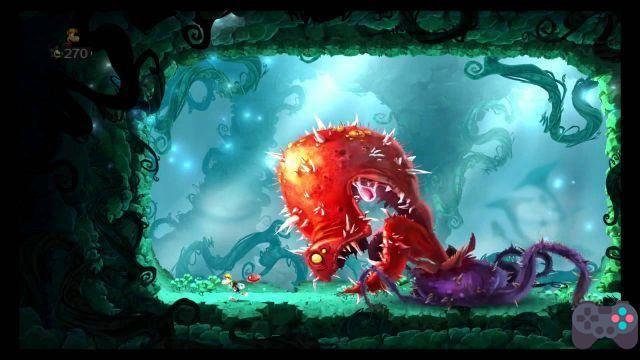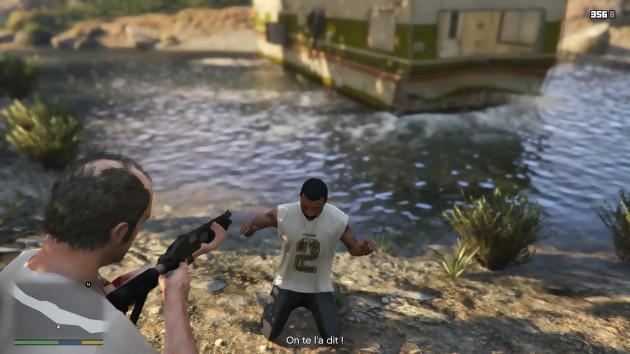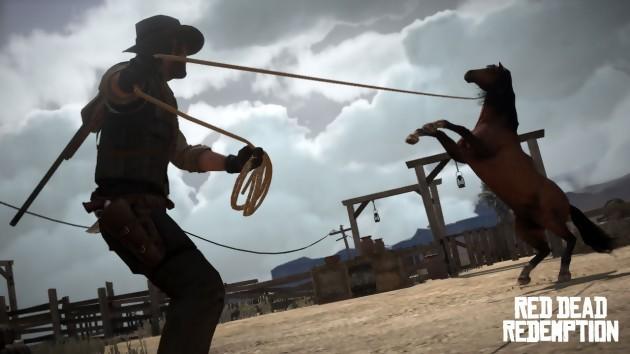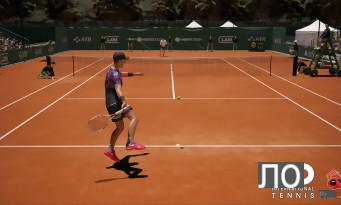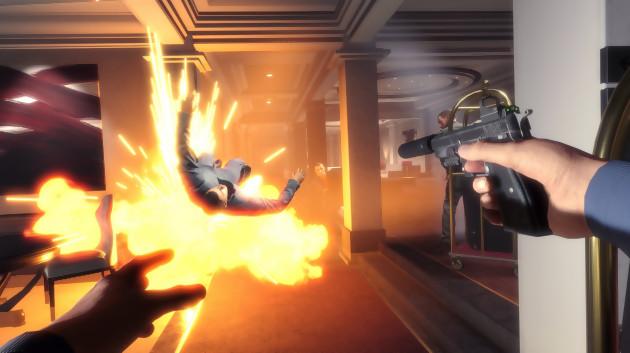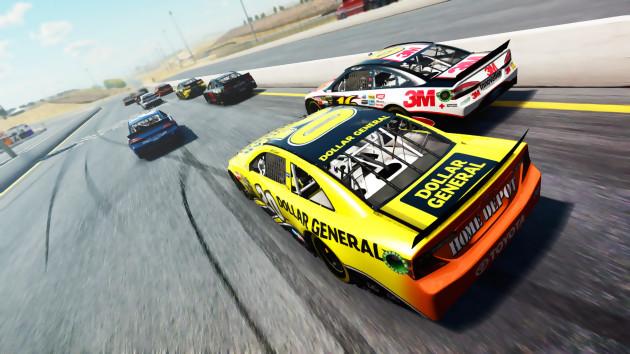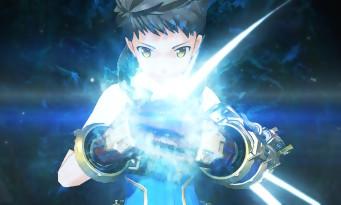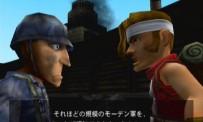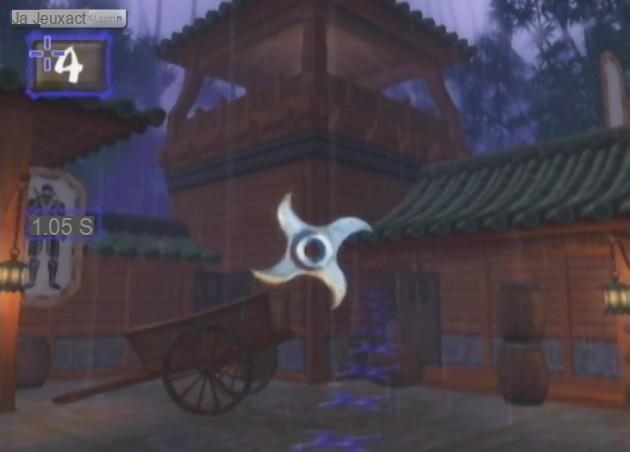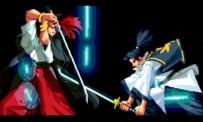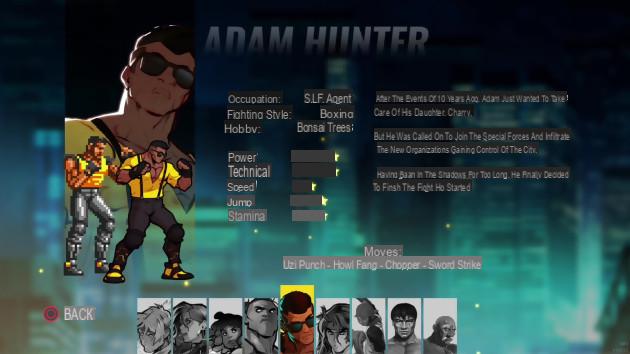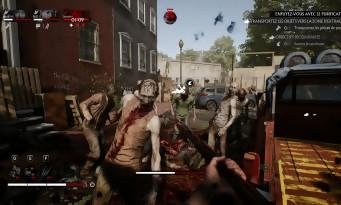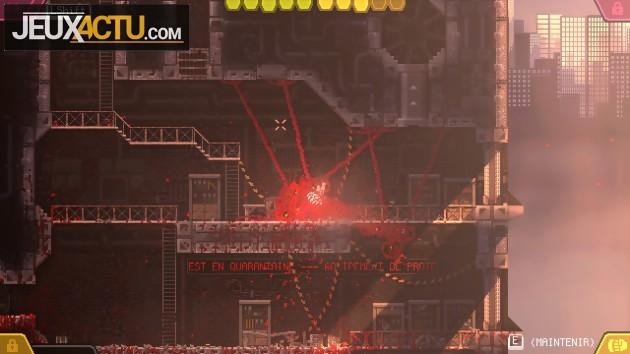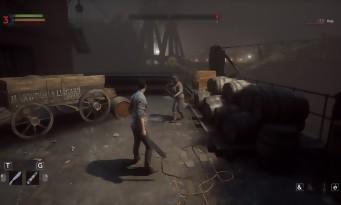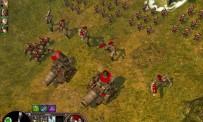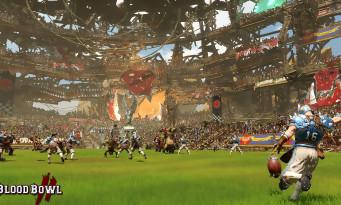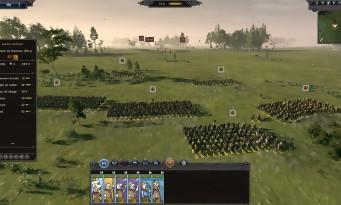 If the history of Great Britain does not lack twists, the developers of The Creative Assembly have chosen more precisely to put their suitcases in 878 after Jesus Christ and a few other notable events (starting with the assassination of Ragnar Lodbrok and the ensuing Viking invasion). The time has come to unify the British Isles and, naturally, various opposing factions seek to fulfill this role. Concretely, the player will be able to choose between ten distinct clans, divided into five main categories: the English Kingdoms, the Welsh Kingdoms, the Gaelic Kingdoms, the Great Viking Army and the Viking Sea Kings. Each of the factions having a different starting territory, as well as specific bonuses and particular victory conditions, the campaign can be replayed many times, which guarantees a very high lifespan. However, it must be recognized that the differences between the factions are quite small, whether in terms of gameplay or visuals. The series had clearly accustomed us to better from this point of view. This defect is partly due to the temporal and geographical refocusing which seems to govern this particular branch of the series. Indeed, connoisseurs will have noticed that the game does not bear the "Total War" brand, but "A Total War Saga", thus emphasizing that we are dealing with a spin-off and not a classic and major episode. The limitations in terms of time and territories may frustrate those who dream of conquering the whole world, but this change of scale is in fact not really a problem. The campaign map is certainly limited, the period covered more compact than usual, but we gain in detail what we lose in size. Moreover, unless you are particularly allergic to the Anglo-Saxons, the historical context remains very interesting.
If the history of Great Britain does not lack twists, the developers of The Creative Assembly have chosen more precisely to put their suitcases in 878 after Jesus Christ and a few other notable events (starting with the assassination of Ragnar Lodbrok and the ensuing Viking invasion). The time has come to unify the British Isles and, naturally, various opposing factions seek to fulfill this role. Concretely, the player will be able to choose between ten distinct clans, divided into five main categories: the English Kingdoms, the Welsh Kingdoms, the Gaelic Kingdoms, the Great Viking Army and the Viking Sea Kings. Each of the factions having a different starting territory, as well as specific bonuses and particular victory conditions, the campaign can be replayed many times, which guarantees a very high lifespan. However, it must be recognized that the differences between the factions are quite small, whether in terms of gameplay or visuals. The series had clearly accustomed us to better from this point of view. This defect is partly due to the temporal and geographical refocusing which seems to govern this particular branch of the series. Indeed, connoisseurs will have noticed that the game does not bear the "Total War" brand, but "A Total War Saga", thus emphasizing that we are dealing with a spin-off and not a classic and major episode. The limitations in terms of time and territories may frustrate those who dream of conquering the whole world, but this change of scale is in fact not really a problem. The campaign map is certainly limited, the period covered more compact than usual, but we gain in detail what we lose in size. Moreover, unless you are particularly allergic to the Anglo-Saxons, the historical context remains very interesting.
THE GAME OF THRONES
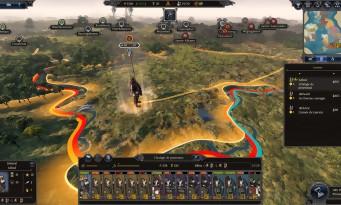 Naturally, Thrones of Britannia retains the main qualities of a classic Total War. We therefore enjoy managing our provinces and our armies on the turn-based strategic map, before presiding over tactical battles in real time. Very impressive, the latter do not hesitate to stage thousands of units simultaneously, which we take pleasure in observing very closely and controlling from very far away. As such, the battles involving siege engines are certainly the most impressive, in addition to being particularly interesting from a tactical point of view. If the 3D engine manages all this with fluidity, it must still be recognized that the purely graphic aspect is starting to date. Models and animations are relatively basic, approximate collisions, and we can truly speak of clone wars since the soldiers of the same group are all identical. It's inevitably a little regrettable, even if we suspect that the developers keep the possible (and soon necessary) big graphic improvements for the major episodes of the series. Basically, The Creative Assembly has made some gameplay adjustments, which regulars of Total War will not fail to notice (and therefore appreciate or regret depending on the case). In the category of positive changes, we will gladly classify the new recruitment system, which allows you to enlist units from any city under the control of the players, the soldiers being taken from a single common reserve. With an additional subtlety: the groups involved are not at their best from the start, and it takes several turns for them to finally express their full potential. Another interesting novelty is the Fervor of War concept. This value represents the desire of your people to see your faction participating in military operations. We must therefore be careful not to wage war too much, nor to rest too much on our laurels.
Naturally, Thrones of Britannia retains the main qualities of a classic Total War. We therefore enjoy managing our provinces and our armies on the turn-based strategic map, before presiding over tactical battles in real time. Very impressive, the latter do not hesitate to stage thousands of units simultaneously, which we take pleasure in observing very closely and controlling from very far away. As such, the battles involving siege engines are certainly the most impressive, in addition to being particularly interesting from a tactical point of view. If the 3D engine manages all this with fluidity, it must still be recognized that the purely graphic aspect is starting to date. Models and animations are relatively basic, approximate collisions, and we can truly speak of clone wars since the soldiers of the same group are all identical. It's inevitably a little regrettable, even if we suspect that the developers keep the possible (and soon necessary) big graphic improvements for the major episodes of the series. Basically, The Creative Assembly has made some gameplay adjustments, which regulars of Total War will not fail to notice (and therefore appreciate or regret depending on the case). In the category of positive changes, we will gladly classify the new recruitment system, which allows you to enlist units from any city under the control of the players, the soldiers being taken from a single common reserve. With an additional subtlety: the groups involved are not at their best from the start, and it takes several turns for them to finally express their full potential. Another interesting novelty is the Fervor of War concept. This value represents the desire of your people to see your faction participating in military operations. We must therefore be careful not to wage war too much, nor to rest too much on our laurels.
THE WAR OF FOR WHOM
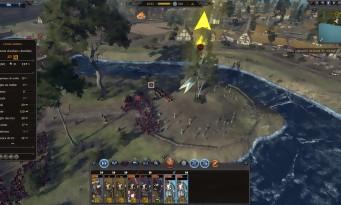 In the radius of half-fig half-grape changes, we can classify the disappearance of garrisons in secondary colonies. Some players will appreciate having to take this parameter into account, and others will see it as a simple shortcoming. And since we are talking about the shortcomings, we must admit that the gameplay has been simplified in a sometimes a little brutal way. Thus, agents are completely absent from this opus, the forced march has disappeared, it is no longer possible to pay taxes region by region, and building improvements are no longer carried out through various branches but now follow a path perfectly linear. One could also cite a few other adjustments which tend towards a certain simplification. And after all, the series could legitimately want to open up to a wider audience via these "A Total War Saga" spin-offs. But in this case, it would have been necessary to completely rework the tutorial, which flies over far too many concepts and does not sufficiently detail the commands and the interface. A regular Total War will not take offense, but newcomers may be the face during their first games. Let's close the chapter of complaints by evoking the time necessary for artificial intelligence to perform its turn on the strategic map. Each time we lose several tens of seconds of our life. Less successful than a classic Total War, and not completely free of the usual dross of the series, Thrones of Britannia should still not be taken for a bad game, far from it. Like the very sympathetic semi-naive medieval dressing (the portraits of the units, the illustrations of certain texts, and the small animated scenes which serve as cutscenes are not lacking in style), the experience remains very pleasant. The concentration on a limited historical period and geography undeniably brings a little touch of freshness to the series. What to wait calmly for the next major episode.
In the radius of half-fig half-grape changes, we can classify the disappearance of garrisons in secondary colonies. Some players will appreciate having to take this parameter into account, and others will see it as a simple shortcoming. And since we are talking about the shortcomings, we must admit that the gameplay has been simplified in a sometimes a little brutal way. Thus, agents are completely absent from this opus, the forced march has disappeared, it is no longer possible to pay taxes region by region, and building improvements are no longer carried out through various branches but now follow a path perfectly linear. One could also cite a few other adjustments which tend towards a certain simplification. And after all, the series could legitimately want to open up to a wider audience via these "A Total War Saga" spin-offs. But in this case, it would have been necessary to completely rework the tutorial, which flies over far too many concepts and does not sufficiently detail the commands and the interface. A regular Total War will not take offense, but newcomers may be the face during their first games. Let's close the chapter of complaints by evoking the time necessary for artificial intelligence to perform its turn on the strategic map. Each time we lose several tens of seconds of our life. Less successful than a classic Total War, and not completely free of the usual dross of the series, Thrones of Britannia should still not be taken for a bad game, far from it. Like the very sympathetic semi-naive medieval dressing (the portraits of the units, the illustrations of certain texts, and the small animated scenes which serve as cutscenes are not lacking in style), the experience remains very pleasant. The concentration on a limited historical period and geography undeniably brings a little touch of freshness to the series. What to wait calmly for the next major episode.




